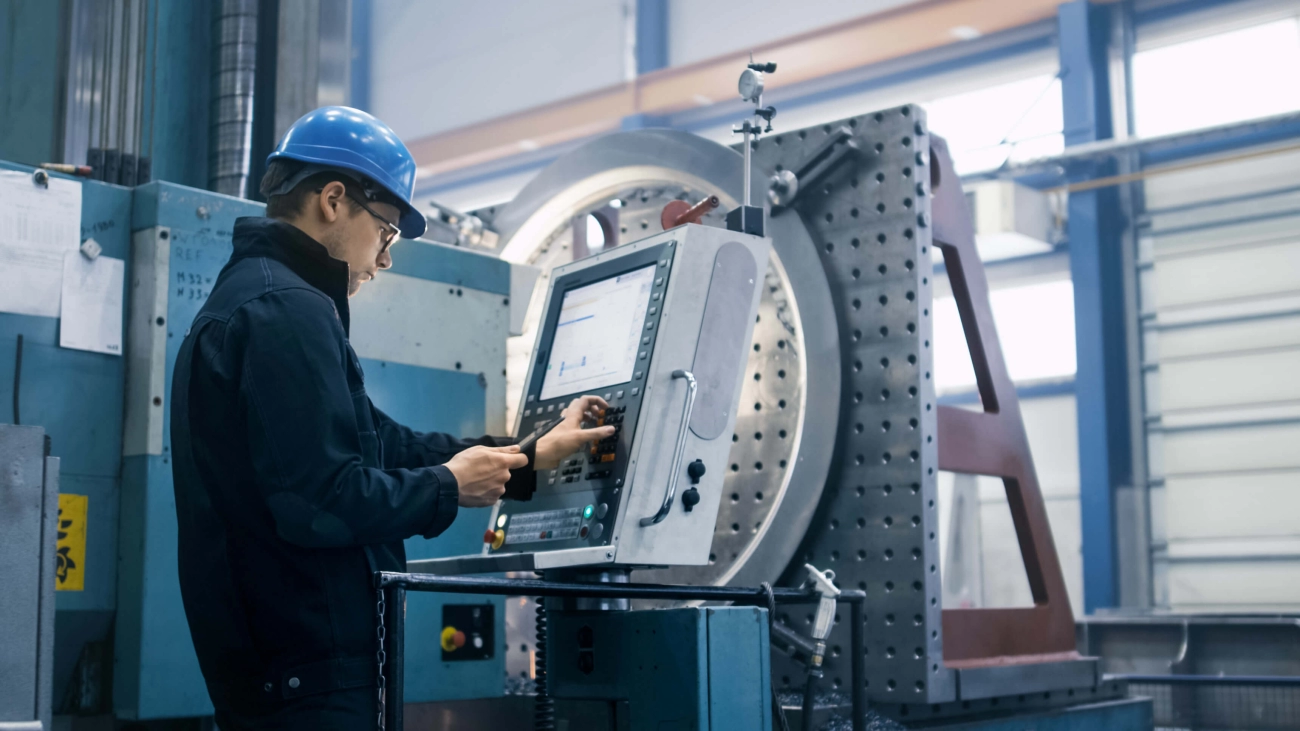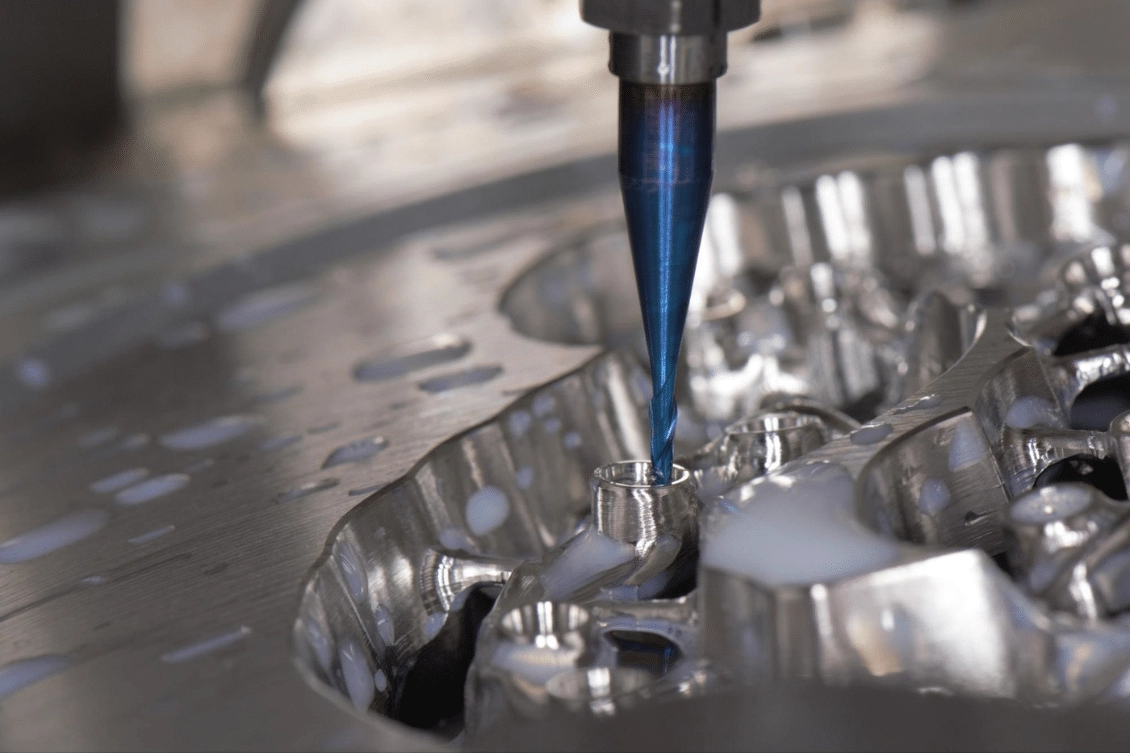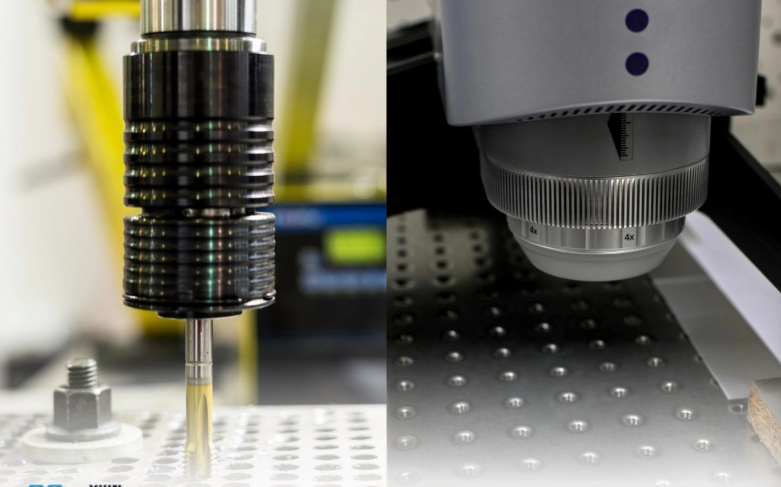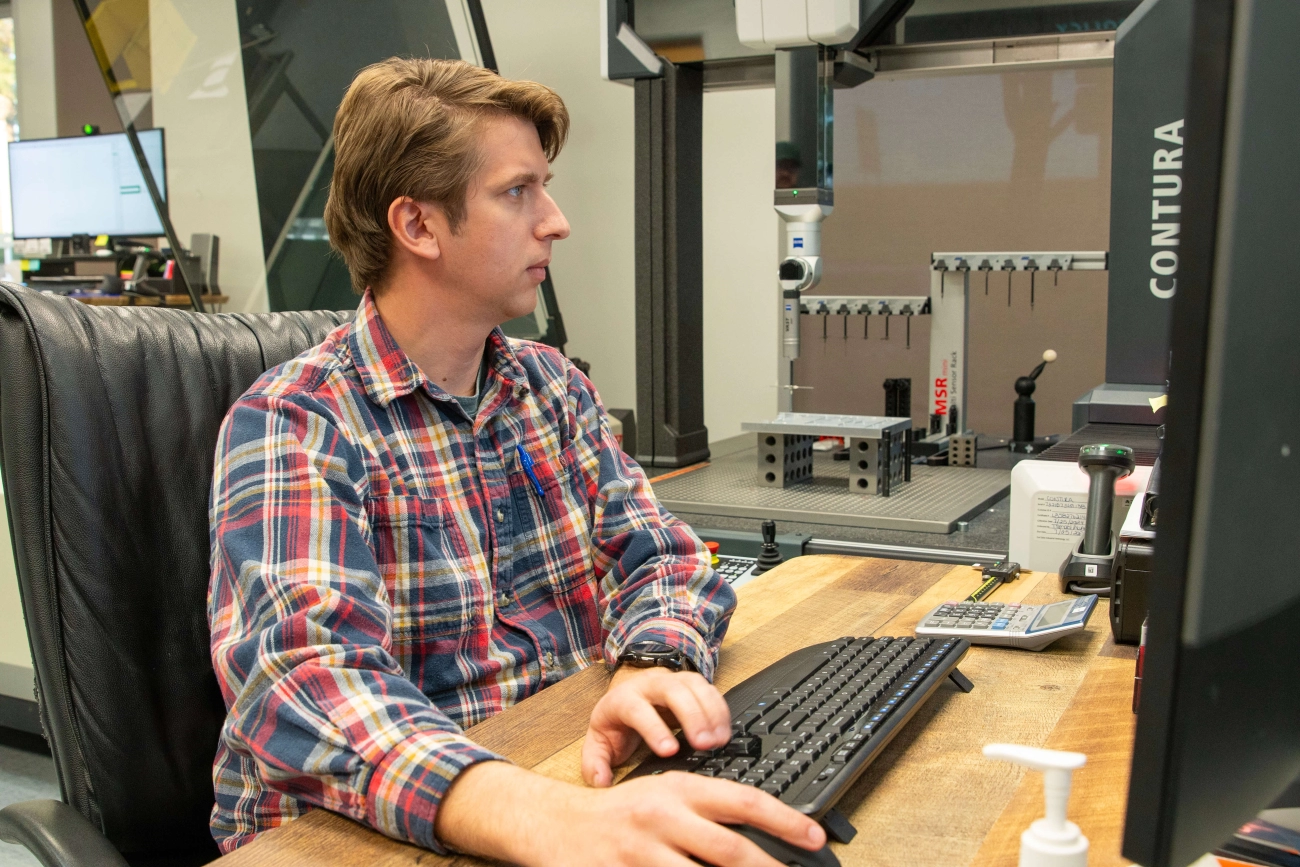Discover custom manufacturing services offering precise low-volume production, rapid prototyping, and reliable local fabrication for your unique product needs.
If you’re exploring how manufacturing custom products can give your business a competitive edge, you’re in the right place. Whether you’re an entrepreneur, engineer, or product designer, finding the right partner for custom manufacturing isn’t just about getting parts made—it’s about precision, flexibility, and agility in a fast-paced market. This guide cuts through the noise to show how tailored production solutions can accelerate your vision while keeping costs and lead times in check. Ready to unlock the potential of custom manufacturing services? Let’s get started.
Understanding Custom Manufacturing What is Custom Manufacturing and Key Methods
Have you ever needed a product that’s not quite off the shelf? That’s where custom manufacturing steps in. Custom manufacturing involves producing goods tailored specifically to a client’s unique requirements, rather than mass-producing standard items. It’s about creating custom parts fabrication and bespoke product development to fit precise needs—whether that means a one-off prototype or low-volume production runs.
Key methods in custom manufacturing include:
- CNC machining services: Using computer-controlled machines to cut and shape materials with high precision. Perfect for custom parts and detailed prototypes.
- Injection molding custom: Ideal for producing complex shapes in plastic, especially when scaling from prototype to production.
- On-demand prototyping: Quickly creating models or parts to test before moving into full production.
- Tailored component assembly: Combining various custom components to create a fully functional product.
This approach is flexible and allows for innovation while managing costs effectively. It’s ideal for startups, established businesses, and anyone who needs manufacturing custom-fit to their exact specifications.
Understanding Custom Manufacturing The Custom Manufacturing Workflow

The custom manufacturing workflow is all about turning your unique ideas into real products. It usually starts with a clear design or prototype, where on-demand prototyping plays a big role. Once the design is nailed down, manufacturers move to custom parts fabrication using methods like CNC machining services or injection molding custom parts.
Next up is low-volume production to test the market or meet specific demands. This stage often involves tailored component assembly to ensure everything fits perfectly. After that, if everything checks out, the process scales from prototype to production scaling for larger runs.
Throughout this workflow, contract manufacturing partners coordinate sourcing, manufacturing, and quality control to keep things smooth. The goal? Deliver bespoke product development tailored to your exact needs, whether you’re working with a local fabrication supplier or a broader network.
Understanding this workflow helps you plan better and choose the right custom manufacturing services that fit your project timeline and budget.
Benefits of Custom Manufacturing Cost and Time Efficiency

Custom manufacturing offers clear advantages when it comes to saving both time and money. Unlike mass production, custom parts fabrication focuses on producing exactly what you need—no excess or wasted materials. This means you avoid large inventory costs and reduce the risk of overproduction.
With on-demand prototyping and low-volume production, you can quickly test and refine designs without waiting months or investing in expensive tooling upfront. Services like CNC machining and injection molding custom runs allow you to move from prototype to production faster, cutting lead times significantly.
By working with contract manufacturing partners who understand your local market and requirements, you get streamlined communication and faster turnarounds. This efficiency helps you stay on schedule, avoid costly delays, and respond quickly to changing needs.
Key cost and time benefits include:
- Reduced upfront investment compared to large-scale production
- Faster prototyping and iteration cycles
- Less waste and lower inventory holding costs
- Ability to scale production quickly without long delays
- Local fabrication suppliers offering quick shipping and support
These factors make custom manufacturing a smart choice for businesses looking to optimize resources while maintaining quality and flexibility.
Benefits of Custom Manufacturing Quality and Customization Advantages

Custom manufacturing offers top-notch quality because it focuses on meeting specific project needs instead of mass production. When you work with contract manufacturing partners, you get tailored product development that ensures every part fits perfectly and performs reliably. This attention to detail means fewer defects and higher durability.
Customization also means you can create unique products that stand out in the market. Whether it’s low-volume production or on-demand prototyping, custom parts fabrication allows you to fine-tune design and materials for your exact requirements. Services like CNC machining and injection molding custom parts make it easy to build components that match your vision and functional needs.
In short, custom manufacturing gives you:
- Better product quality through focused craftsmanship
- Flexibility to adjust designs quickly during the prototype to production scaling
- Unique components that align with your brand and customer demands
This level of quality and customization is especially important for businesses in the U.S. looking to compete by offering innovative, reliable products made with local fabrication suppliers.
Benefits of Custom Manufacturing Scalability and Innovation Edge
Custom manufacturing offers great flexibility to scale production as your business grows. Whether you need a small batch of prototypes or larger volumes for market launch, custom parts fabrication and low-volume production can easily adjust to your timeline and budget. This means you’re not stuck with excess inventory or long wait times.
On top of that, custom manufacturing gives you an innovation edge. Because you’re working with tailored product development and contract manufacturing partners, you can experiment with new designs and materials faster. The ability to quickly iterate—from on-demand prototyping to prototype to production scaling—lets you stay ahead in competitive markets without sacrificing quality.
By choosing custom manufacturing, you’re setting up your business to respond quickly to market demands and new opportunities, giving you a powerful advantage in today’s fast-paced manufacturing world.
Common Challenges in Custom Manufacturing Sourcing Reliable Partners

Finding the right contract manufacturing partners can be tricky. Reliable suppliers who understand your unique needs are crucial for success in custom parts fabrication. Many businesses struggle with:
- Consistency: Not all suppliers deliver the same quality every time. You need a partner who sticks to specs and deadlines.
- Communication: Clear, timely updates keep projects on track. Without it, issues can snowball.
- Capability Match: Your supplier should offer the specific services you need, like CNC machining services, injection molding custom runs, or on-demand prototyping.
- Local vs Global: Working with local fabrication suppliers often means faster turnaround and easier collaboration. Global partners may offer cost savings but add complexity in logistics and communication.
To overcome these challenges, spend time vetting potential partners for their track record, customer feedback, and flexibility with low-volume production and bespoke product development. Choosing a reliable partner sets the tone for smooth prototype to production scaling and tailored component assembly.
Common Challenges in Custom Manufacturing Managing Costs and Lead Times
Managing costs and lead times is one of the biggest hurdles in custom manufacturing. Because each product is tailored, you can’t always rely on standard pricing or quick turnaround. Here’s what often makes this tricky:
- Variable material costs: Custom parts fabrication often uses specialized materials, which can fluctuate in price depending on supply and demand.
- Complex processes: On-demand prototyping and low-volume production methods may need extra setup time, which adds to the overall lead time.
- Limited economies of scale: Unlike mass production, smaller runs don’t benefit from bulk discounts, which can push costs higher.
- Unexpected delays: Changes in design or sourcing disruptions slow down production, causing lead times to stretch.
- Balancing quality and speed: Rushing a custom job can affect the quality, but long lead times can frustrate customers and impact delivery schedules.
To handle these challenges effectively:
- Partner with contract manufacturing partners who offer transparent pricing and reliable timelines.
- Communicate upfront about material availability and production capacity.
- Plan for some flexibility in schedules to accommodate design iterations or sourcing delays.
- Use local fabrication suppliers when possible to reduce shipping time and costs.
Keeping a close eye on these factors helps control expenses and ensures your custom manufacturing projects stay on track.
Common Challenges in Custom Manufacturing Design and Iteration Hurdles
Design and iteration are critical in custom manufacturing, but they often come with some tricky challenges. One big hurdle is turning your initial idea into a workable design that fits production capabilities. Sometimes, what looks great on paper doesn’t quite translate to actual parts, especially with custom parts fabrication or when using specific techniques like CNC machining services or injection molding custom processes.
Another challenge is iteration speed. Getting feedback, tweaking designs, and testing prototypes can slow down your timeline, especially in on-demand prototyping where each change means additional time and cost. Delays here can disrupt the whole prototype to production scaling process.
Communication gaps between design teams and contract manufacturing partners often add to these frustrations. Misunderstandings can cause costly mistakes or require multiple redesigns. This is why clear, ongoing collaboration matters for smooth bespoke product development.
To tackle these hurdles consider:
- Using digital tools for faster design revisions and clear feedback loops
- Partnering with suppliers who offer integrated design support and rapid prototyping
- Prioritizing manufacturability early to avoid costly design changes later
- Setting realistic timelines that account for iterative improvements
Addressing these design and iteration challenges head-on can save time, reduce costs, and improve the quality of your final product in the custom manufacturing process.
Choosing the Right Custom Manufacturing Partner Key Criteria for Evaluation
Picking the right partner for manufacturing custom parts is crucial. Here’s what to look for to make sure you get quality, reliability, and value:
- Experience and ExpertiseLook for a partner with a proven track record in custom parts fabrication and on-demand prototyping. They should understand your industry and offer relevant CNC machining services, injection molding custom solutions, or bespoke product development tailored to your needs.
- Quality Control StandardsA good partner will have strict quality checks in place, ensuring your products meet expectations from prototype to production scaling. Certifications and consistent inspection processes are key.
- Flexibility and ScalabilityThey should handle low-volume production runs as well as larger orders without sacrificing quality. The ability to scale and adapt keeps your project on track as your business grows.
- Communication and TransparencyExpect clear, regular updates and easy access to project details. Open lines of communication help avoid delays or misunderstandings during tailored component assembly.
- Technology and CapacityMake sure they offer modern manufacturing capabilities including CNC machining, injection molding, and possibly local fabrication suppliers for quicker turnaround.
- Cost and Lead TimeCompetitive pricing is important, but it shouldn’t come at the cost of quality. Trusted contract manufacturing partners balance cost-efficiency with reasonable lead times and reliable delivery schedules.
Keeping these criteria in mind helps you find a custom manufacturing partner suited for your specific needs, minimizing risks and supporting your product’s success in the U.S. market.
Choosing the Right Custom Manufacturing Partner Local vs Global Sourcing

When picking a custom manufacturing partner, deciding between local and global sourcing is a big deal. Both have perks and trade-offs, so it’s important to weigh what fits your project and timeline best.
Local Sourcing Benefits
- Faster turnaround times: Working with local fabrication suppliers often means quicker communication and reduced shipping delays.
- Easier quality control: You can visit the facility, check custom parts fabrication firsthand, and keep a closer eye on production.
- Better collaboration: Being in the same time zone makes working through on-demand prototyping or bespoke product development simpler.
- Supports local economy: Choosing local partners helps grow US manufacturing and keeps jobs close to home.
Global Sourcing Benefits
- Cost savings: Often, contract manufacturing partners overseas can offer lower production costs, especially for low-volume production.
- Wide capabilities: Access to a broader range of CNC machining services, injection molding custom options, and scale-ready factories.
- Production scale: Easier to scale from prototype to production when working with larger global suppliers.
Considerations to Decide
- Project size: Small runs or prototypes might benefit more from local suppliers for quick iteration.
- Budget: If keeping costs low is critical, global sourcing can be attractive but watch out for added shipping and customs fees.
- Lead times: Longer shipping times from overseas can extend your timeline.
- Quality needs: Complex or highly customized parts may require more hands-on quality checks, favoring local partners.
In most cases, balancing local and global sourcing depends on your specific needs. Some businesses even use a hybrid approach: local partners for prototyping and global partners for larger runs.
Choosing the right custom manufacturing partner means understanding these trade-offs and knowing your priorities around cost, timing, and quality.
Choosing the Right Custom Manufacturing Partner Red Flags and Best Practices

When picking a custom manufacturing partner, watching out for red flags can save you time and money down the road. Here’s what to keep an eye on:
- Lack of TransparencyIf a supplier won’t share clear details about pricing, lead times, or processes, that’s a big warning sign. Honest communication is key for smooth custom parts fabrication and low-volume production.
- Unclear Quality StandardsMake sure your partner follows strict quality controls. If they can’t provide documentation or examples of quality checks, your project may face delays or defects.
- No Experience with Your IndustryCustom manufacturing covers many fields. A partner unfamiliar with your specific needs may struggle with your bespoke product development or CNC machining services.
- Poor Response TimeSlow or inconsistent communication means trouble ahead, especially in fast-paced custom manufacturing workflows like on-demand prototyping.
- Resistance to Design IterationsFlexibility is important. If your partner is unwilling to work through multiple design rounds or prototype to production scaling, your product’s success can suffer.
For the best results, follow these best practices:
- Ask for References and Case StudiesCheck their track record on similar projects and industries.
- Request Samples or PrototypesSeeing or testing parts before full production helps confirm their capabilities.
- Set Clear Expectations from the StartDefine scope, deadlines, and quality requirements upfront to avoid surprises.
- Prioritize Local Fabrication Suppliers When PossibleLocal partners often provide faster turnaround and easier collaboration, especially important for tailored component assembly.
- Use Contract Manufacturing Partners Familiar with Your MarketThis ensures alignment with local regulations and customer needs.
By spotting these red flags early and following proven best practices, you’ll secure a reliable partner ready to deliver quality custom manufacturing solutions.
Real World Applications Industry Spotlights
Custom manufacturing plays a huge role across many industries here in the U.S. From automotive parts to medical devices, tailored solutions are driving innovation and efficiency.
Automotive relies on custom parts fabrication for specialized components that improve performance and safety. Custom manufacturing helps with quick on-demand prototyping and low-volume production runs, letting companies test ideas before full-scale release.
Medical and healthcare use bespoke product development to create precise, patient-specific equipment. Custom injection molding and CNC machining services make complex parts possible with tight quality controls.
Consumer electronics benefit from prototype to production scaling, enabling flexible design changes and fast turnaround on new gadgets and accessories. Custom manufacturing allows for tailored component assembly that fits unique designs and small batches.
Aerospace and defense require durable, high-quality parts from contract manufacturing partners with strict standards and secure processes. Scalability and innovation edge are key here, thanks to custom manufacturing workflows.
Across these industries:
- Custom manufacturing cuts lead times compared to traditional mass production
- It lowers costs by focusing on exact needs rather than large inventories
- It supports innovation by allowing rapid design changes and iterations
This spotlight on industries shows that local fabrication suppliers and contract manufacturers who specialize in custom parts fabrication are vital to U.S. businesses wanting flexible, high-quality, and efficient production.
Real World Applications Vast in Action Tailored Solutions for Local Clients
At Vast, we bring custom manufacturing to life by delivering tailored solutions that fit the unique needs of local clients across the U.S. Whether it’s custom parts fabrication, on-demand prototyping, or low-volume production, we focus on creating products that meet exact specifications without the long wait or high costs.
Our approach leverages CNC machining services, injection molding custom runs, and bespoke product development to help businesses scale from prototypes to full production smoothly. We work closely with local fabrication suppliers and contract manufacturing partners to ensure fast turnaround times and high-quality standards.
Some ways we help local clients include:
- Rapid prototype to production scaling for startups and established businesses
- Tailored component assembly designed specifically for regional market demands
- Flexible batch sizes that keep costs manageable while meeting growth needs
- Close communication and collaboration, making design iterations simple and effective
By focusing on local industries—from medical devices to consumer goods—we make custom manufacturing accessible, reliable, and efficient for clients across the United States. Vast isn’t just a service; it’s a partner tuned into your timeline and budget, ready to deliver bespoke manufacturing solutions that work.
Getting Started with Vast Step by Step Onboarding Process
Starting custom manufacturing with Vast is straightforward and designed to get your project moving quickly. Here’s how the onboarding process works:
- Initial ConsultationWe begin by understanding your needs—whether it’s custom parts fabrication, on-demand prototyping, or low-volume production. This helps us tailor a plan that fits your goals.
- Project AssessmentOur team reviews your designs and specifications to recommend the best manufacturing methods, such as CNC machining services or injection molding custom options.
- Quote and AgreementYou’ll receive a clear, competitive quote. Once agreed, we finalize timelines and expectations so there are no surprises.
- Prototype DevelopmentWe kick off with a prototype or sample part, letting you see and test the tailored component assembly before full production.
- Production ScalingAfter your approval, we move to contract manufacturing partners and scale production, maintaining quality at every step.
- Ongoing SupportThroughout the process, we provide regular updates and adjust as needed to meet your deadlines and budget.
By following this step by step onboarding, Vast ensures your custom manufacturing project is smooth from prototype to production scaling. Reach out to begin your bespoke product development with local fabrication suppliers who understand the US market.
Getting Started with Vast Why Choose Vast
Choosing Vast for your custom manufacturing needs means working with a local partner who understands the unique demands of the U.S. market. We specialize in custom parts fabrication, on-demand prototyping, and low-volume production, making it easy to move from prototype to production without the usual headaches.
Here’s why Vast stands out:
- Local Fabrication Suppliers: We keep production close to home, helping you cut lead times and stay flexible.
- Tailored Solutions: Whether you need CNC machining services or injection molding custom parts, we tailor every step to fit your project.
- Reliable Contract Manufacturing Partners: We connect you with trusted manufacturers who deliver quality and consistency.
- Cost and Time Efficiency: With Vast, you get streamlined workflows that save money and speed up delivery.
- Scalable Production: Start small and grow your product line without switching providers.
- Clear Communication: We keep you in the loop from design to delivery, so you never second guess your project’s progress.
Working with Vast means you get more than just manufacturing — you get a partner that helps you bring ideas to life with ease and confidence in today’s competitive U.S. market.
Getting Started with Vast Next Steps and Resources
Starting your journey with Vast for manufacturing custom parts is straightforward and designed to fit your needs. Here’s how to move forward and the resources you can use:
Next Steps
- Reach Out for a ConsultationContact our team to discuss your specific project needs, whether it’s custom parts fabrication, on-demand prototyping, or low-volume production.
- Share Your Design and RequirementsProvide us with your designs or ideas. We can support everything from CNC machining services to injection molding custom projects.
- Get a Clear Quote and TimelineWe’ll give you a transparent estimate that highlights cost and lead times tailored to your project.
- Start Prototype to Production ScalingBegin with prototyping and move smoothly into larger runs as your product evolves.
Helpful Resources
- Project GuidesStep-by-step manuals for bespoke product development and tailored component assembly.
- FAQs and SupportAnswers to common questions about contract manufacturing partners and working with local fabrication suppliers.
- Industry InsightsUpdates on the latest trends in custom manufacturing to keep you informed and competitive.
By choosing Vast, you’re backed by local expertise and a network committed to quality, reliability, and innovation in custom manufacturing. Let’s build something great together.